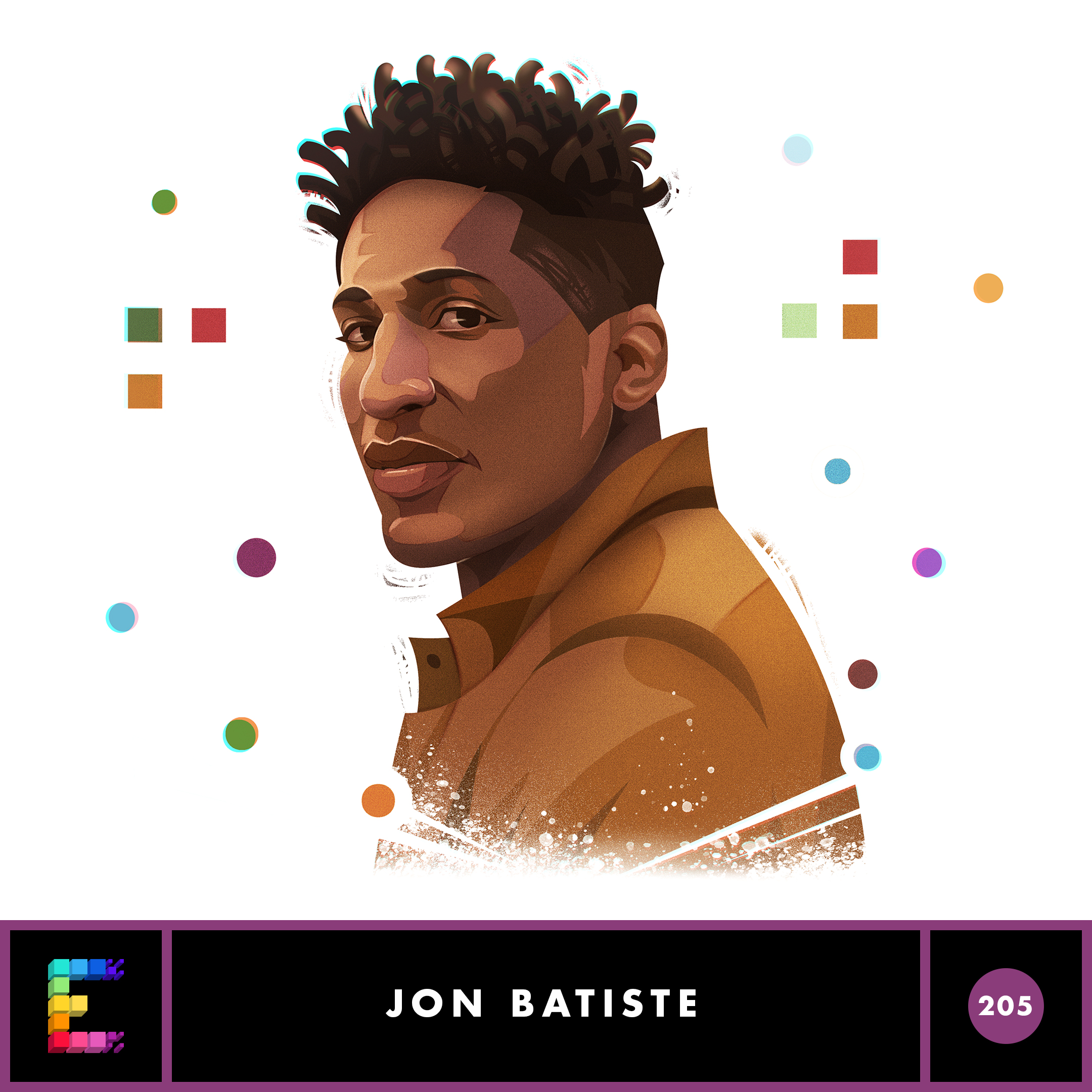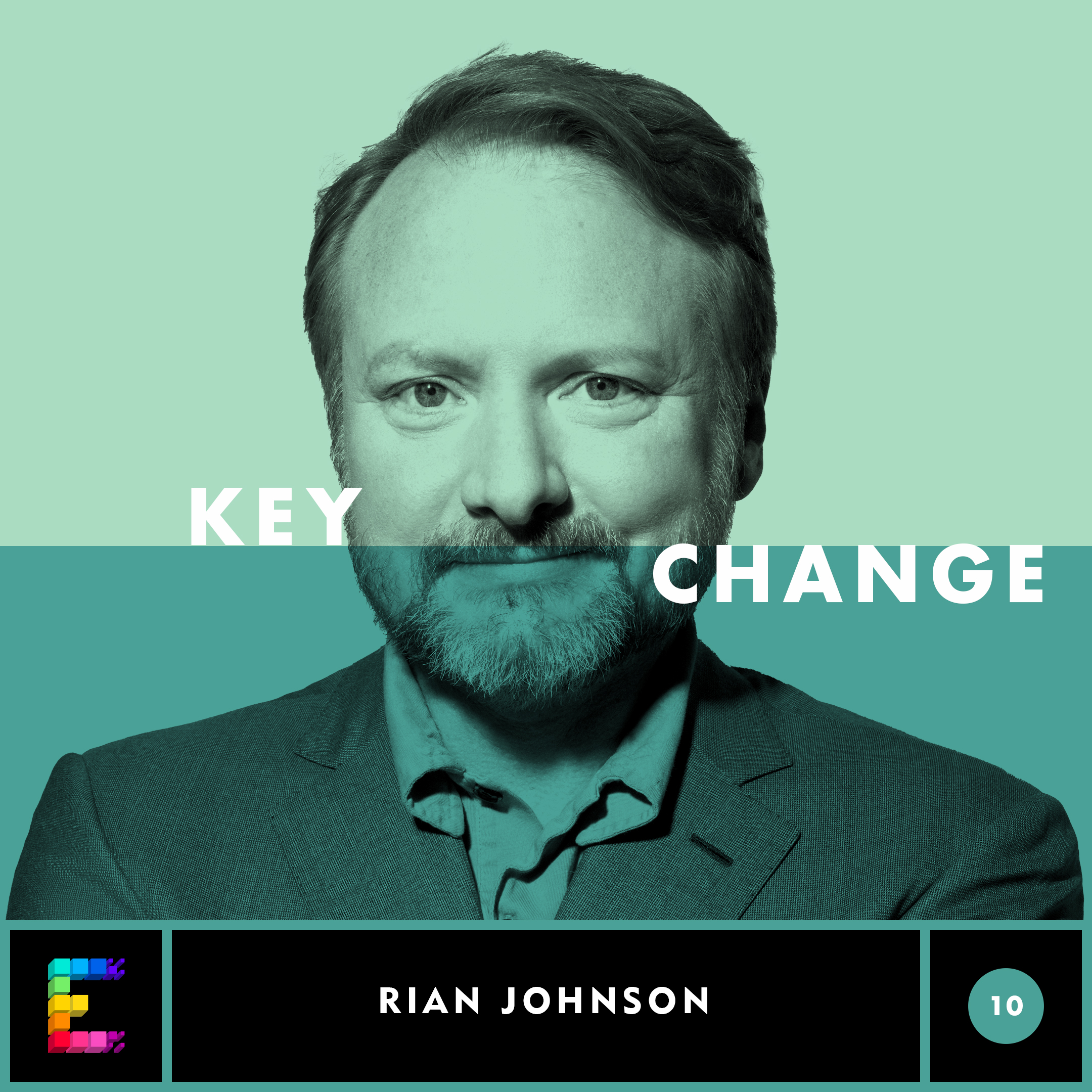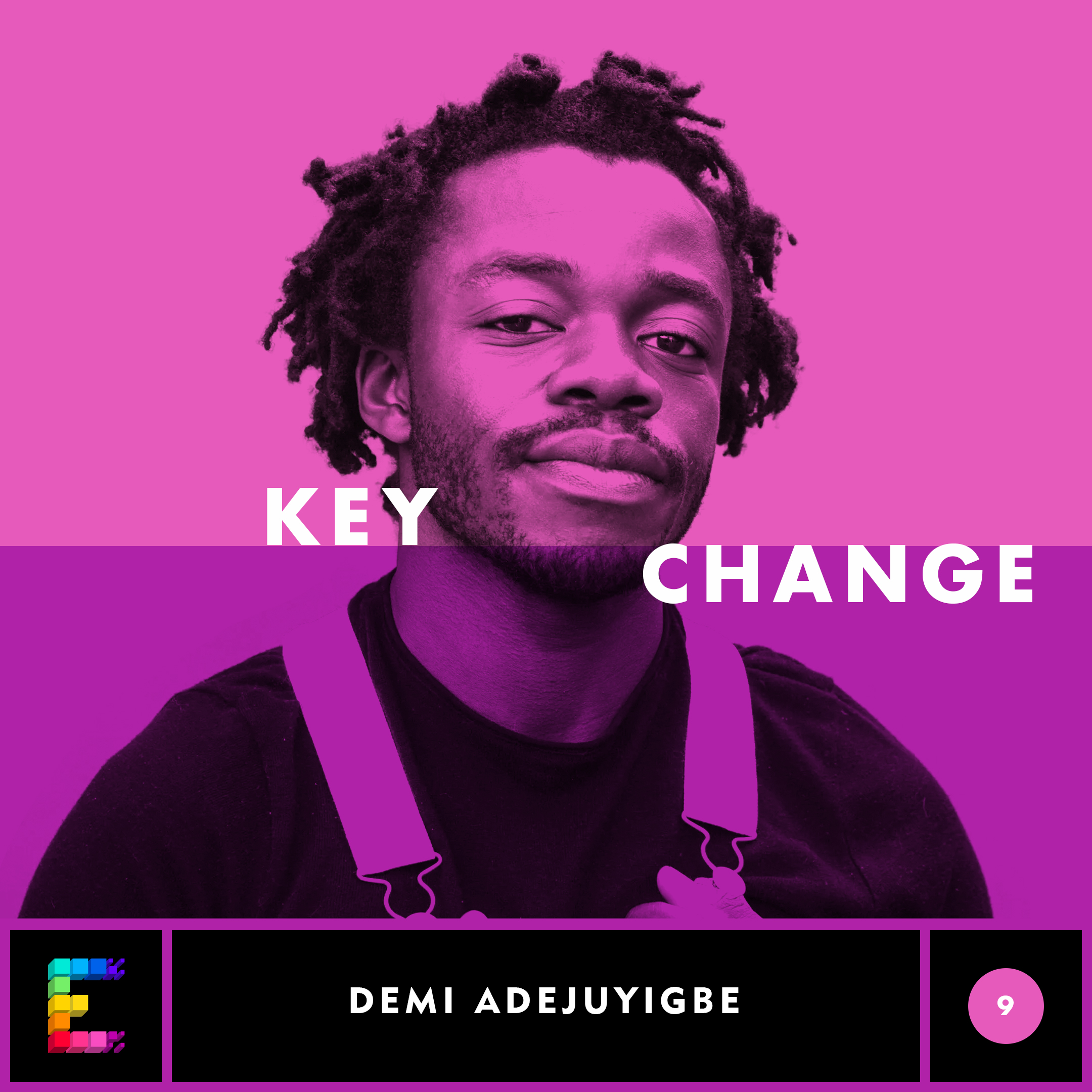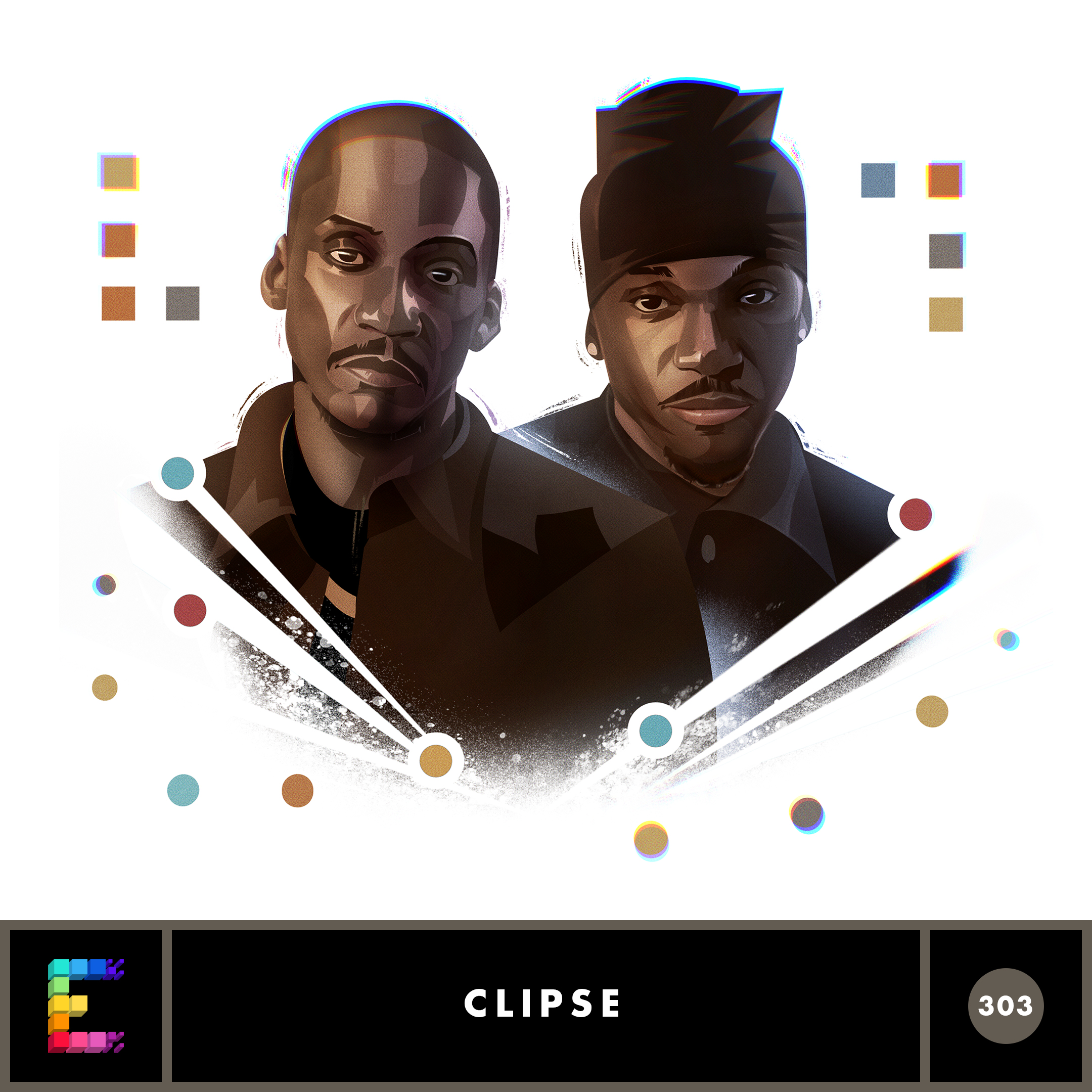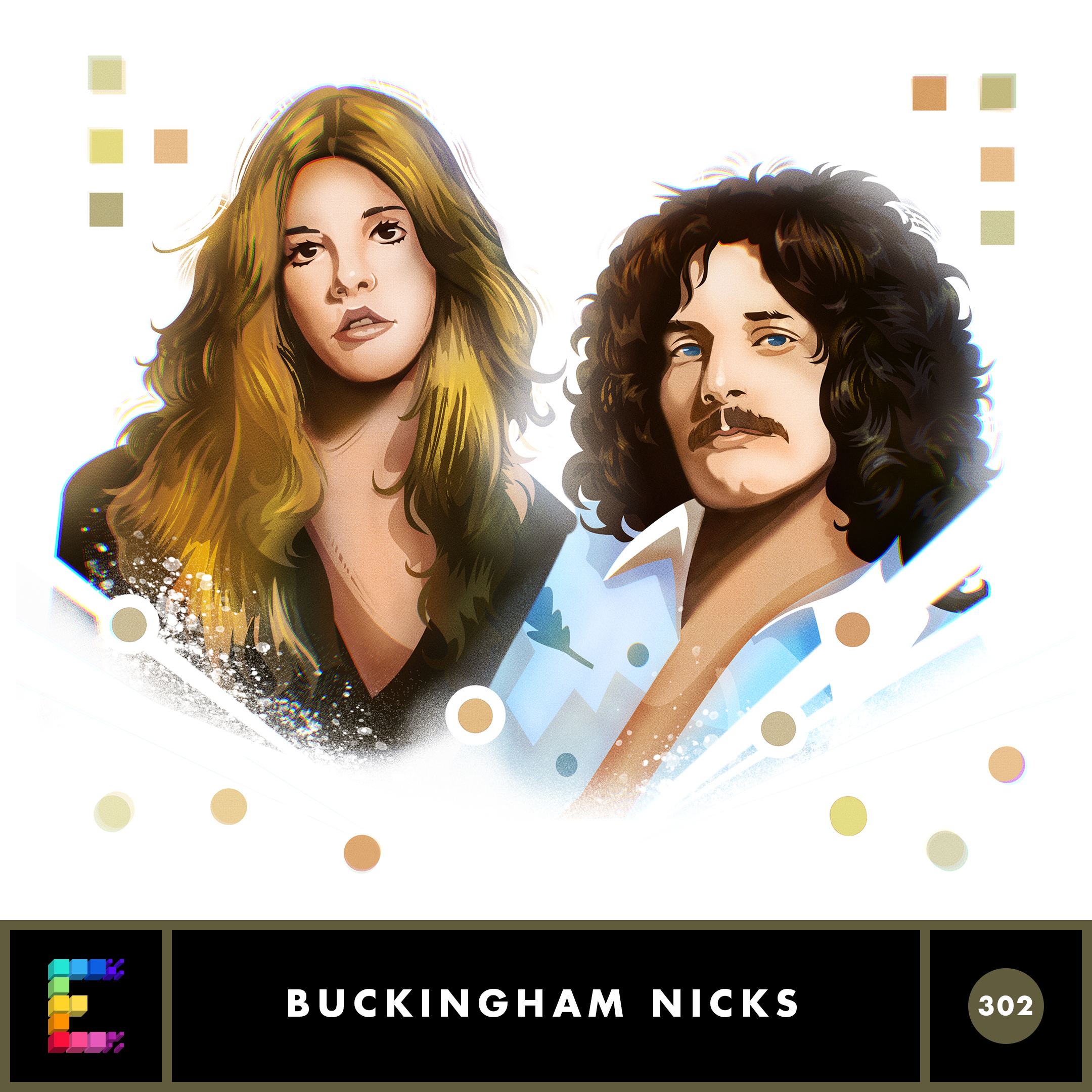Jon Batiste - We Are
Jon Batiste is a pianist, songwriter, and composer from New Orleans. He’s been nominated for multiple Grammys, and just won the Golden Globe and got an Oscar nomination for the soundtrack to the Pixar film Soul, which he composed along with Trent Reznor and Atticus Ross. Jon is also a recipient of the American Jazz Museum’s Lifetime Achievement Award, and on weeknights, you can see him as the bandleader on The Late Show with Stephen Colbert. In March 2021, he put out his new album, We Are. But the title track from it actually came out much earlier, in June 2020. In this episode, Jon talks about how he drew from his roots, both at a personal level and at a cultural level, and wove all of it into the song.
For more, visit songexploder.net/jon-batiste.
Press play and read along
Transcript
Speaker 1 You're listening to Song Exploder, where musicians take apart their songs and piece by piece tell the story of how they were made. I'm Rishi Kesh Herway.
Speaker 1 This episode is brought to you by the new film Splitsville. It's a comedy about relationships and the messiness that comes with them, and it stars Dakota Johnson and Adria Arhona.
Speaker 1 It premiered at Cannes, where it got rave reviews, and it's distributed by Neon. And for me, that's huge, because I trust Neon the way that I trust my favorite record labels.
Speaker 1 I will definitely check out anything that they put their name on. So I'm looking forward to seeing this.
Speaker 1 Splitsville is already playing now in select theaters, and it'll be playing everywhere on September 5th.
Speaker 1 Thanks to Indeed for supporting Song Exploder. If you need to hire somebody for your business and you have to do it quickly, Indeed is all you need.
Speaker 1 With Indeed's sponsor jobs feature, your post jumps to the top of the page for relevant candidates, so you can reach the people you want faster. There's no need to wait any longer.
Speaker 1 Speed up your hiring right now with Indeed. And Song Exploder listeners will get a $75 sponsored job credit to get your jobs more visibility at indeed.com slash SongExploder.
Speaker 1
Again, that's indeed.com slash SongExploder. Terms and conditions apply.
Hiring? Indeed is all you need.
Speaker 1 For the last couple weeks, I've been getting ready for a trip I'm going to make to Connecticut to moderate a conversation between John Batiste and his wife, the author Suleka Jawad.
Speaker 1 So I've been deep in my prep and research, and I thought about the first time I ever spoke to John Batiste, which was for a Song Exploder episode that came out back in March 2021.
Speaker 1
A lot has happened for John since then. At the time, his album, We Are, was brand new.
The next year, he ended up getting 11 Grammy nominations and winning five of them, including Album of the Year.
Speaker 1 John and Suleka were also the subjects of the award-winning documentary American Symphony, and I really enjoyed our conversation and I wanted to revisit it. So here it is.
Speaker 1 John Batiste is a pianist, songwriter, and composer from New Orleans.
Speaker 1 He's been nominated for multiple Grammys and he just won the Golden Globe and got an Oscar nomination for the soundtrack to the Pixar film Soul, which he composed along with Trent Reznor and Atticus Ross.
Speaker 1 John is also a recipient of the American Jazz Museum's Lifetime Achievement Award, and on weeknights, you can see him as the band leader on The Late Show with Stephen Colbert.
Speaker 1 In March 2021, he put out his new album, We Are, but the title track from it actually came out much earlier, in June 2020.
Speaker 3 He put the song out during the Black Lives Matter protest before it was even finished being mixed and mastered.
Speaker 1 In this episode, John talks about how he drew from his roots, both at a personal level and at a cultural level, and wove all of it into the song.
Speaker 3 I'm John Baptiste.
Speaker 3 So I started working on this song in September of 2019 with Kizzo, a great producer from the Netherlands and Autumn Row.
Speaker 3
We met up in New York City and this is pre-COVID. My life is busy.
I'm doing the late show. I'm writing the score for soul.
Speaker 3 I have so many different things going on at the same time, but I really wanted to find a way to write.
Speaker 3 And we got together for nine days, and with a laptop and a MIDI keyboard and a bunch of instruments in my dressing room at the Ed Sullivan Theater, we started working on songs.
Speaker 3
Autumn and Kizzo would be in the dressing room working. I would be in there working, popping in and out to do things.
And there wasn't a lot of time for the critical, analytical side of music making.
Speaker 3 It was more along the lines of sparks of inspiration that we capture and then move on to the next spark.
Speaker 3 You know, Carol Burnett, she told me something that I didn't even realize until, you know, four years into it being my dressing room that that was her dressing room when she was doing the Carol Burnett show.
Speaker 3 And she was telling me all kinds of stories about what happened.
Speaker 3 in that dressing room. And obviously the Ed Sullivan Theater has all of these titans of culture and music that have all walked through those halls and played on that stage.
Speaker 3 And I think that we captured some of the spirits that are in that space. But at the end of 10 songs or so,
Speaker 3
this was the first day where we'd hit a wall and we felt, well, maybe this is the end of the road. And we thought we had kind of maxed out.
And I left the room to take a phone call.
Speaker 3 And it was like a long phone call, maybe an hour or something. I come back into the room and there's this beat
Speaker 3 there's drums and chords
Speaker 3 and I was like oh well maybe we're not done here yet
Speaker 3 it's always the same feeling when I get inspired I just feel like I want to dance I feel like I want to get up and grab it and hug it
Speaker 3 autumn has this really wonderful gift of creating melodies, and she had something on the track that resonated with me.
Speaker 3 So she's doing something that's like,
Speaker 3
typically, the way that we work is she'll have a melody or something like that, and then I'll write to my heart. And what came out is, We Are the Golden Ones.
We are the chosen ones.
Speaker 3 We are, we are, we are, we are golden ones.
Speaker 3 We are, we are, we are, we are the chosen ones.
Speaker 3 Woo!
Speaker 4 Okay, yeah.
Speaker 3 That's Autumn and Kizzo and myself capturing the vocal, trying to create a choir because I wanted it to feel like just the whole world singing. We are, we are, we are, we are chosen ones.
Speaker 4 We are, we are, we are, we are the golden ones.
Speaker 3
We are the golden ones. We are the chosen ones.
The idea that our destiny is in our own hands through free will and the expression of our own personal power comes from me seeing
Speaker 3 the ancestral line of the black diaspora and all of the superpowers that they've been endowed with that have been given to me as a part of this sacred lineage to see how we've overcome such marginalization.
Speaker 3 But there are still so many unsung heroes who have taught and picketed and protested and stood and created.
Speaker 3 I think about my grandfather who he was the president of the hotel workers union and the postal workers workers union in Louisiana. And he was an activist, and now he's an elder in the AME church.
Speaker 3 And he is a manifestation of what I'm talking about. He's an unsung hero in the sense that he's not a name that you know.
Speaker 3
He's not one of the five people that we pick to put in our social studies textbooks. But when I wrote the first verse, I was thinking about his wife, my grandmother.
Her nickname was Nana.
Speaker 2 The ghetto is full of stars.
Speaker 5 Watch them shine from afar on days when it's hard.
Speaker 2 And always, Nana knows how to sing.
Speaker 3 She passed away when I was a kid, but I saw her and the strength and resilience that she had, raised eight kids, strength mixed with this nurturing, knowing quality.
Speaker 3
As I got older and now have been in this world of celebrity, I see the resonance of a star, of a person who is revered in that way. And she had that in spades.
She was a star.
Speaker 3 So that was the first thing I wrote.
Speaker 2 The ghetto is full of stars.
Speaker 3 I started to think about how many of our greatest natural resource, humans, how much of it do we waste and undervalue.
Speaker 3 There are ghettos all over the world that are full of people to be celebrated, full of people who could shine a light. All of these kids, one of those kids could be Shirley Chisma.
Speaker 3 That could be Albert Einstein. The next Miles Davis could be somewhere in a school where they cut the music program.
Speaker 3 In Hollygrove with my grandmother, where I used to go sit on the porch, it's full of stars. I was there.
Speaker 2 I saw it.
Speaker 3 As I was writing it, I felt that this is an anthem that the whole world will sing. I'm envisioning us playing this at the Super Bowl, which led to the dream of a marching band.
Speaker 3 So we made a demo out of MIDI instruments. Obviously we didn't have a marching band in the dressing room.
Speaker 3
So after that day, this is literally all in one day. Working 12, 16 hour days.
You know, we left with a full song that could have been the final version.
Speaker 3 But it didn't feel as authentic to who it is that I am.
Speaker 3 I needed to expand on the palette of sound, and we weren't going to be able to finish the entire vision in the dressing room. But
Speaker 3 this was a roadmap.
Speaker 3 My friend Ryan Lynn, he was also the executive producer of the album. He functions almost as a mirror for me, keeping me authentic and keeping me honest.
Speaker 3 So the next month, we were listening to music and thinking about doing all these different things with the record creatively.
Speaker 3
And one of the songs that has stood out was a song by Mac Miller called Ladders. I had the great honor of knowing Mac a bit and playing with him.
His last television appearance was with us.
Speaker 3 Performing ladders from his new album Swimming with John Baptiste and Stay Human. Please welcome back to the late show, Mac Miller.
Speaker 3 The times that I played with Mac and heard his recordings, the stuff that stood out, there was a common thread with all of it, the elements of the tracks that really stood out sonically to me, which was that Pomo, this producer, was involved or produced or it was all done by him.
Speaker 3 So we set up sessions with Pomo and the next month is a process of working with Pomo on We Are, crafting a certain world that that puts us in sonically.
Speaker 3 So, the piano is a character throughout the record.
Speaker 3 With the bare piano chords, you feel the eeriness, the hovering of the spirits over the waters,
Speaker 3 the lack of knowing what's around the corner.
Speaker 2 We're never alone,
Speaker 2 no,
Speaker 2 no,
Speaker 2 we're never alone.
Speaker 3 The mellotron was also very important in creating that feel.
Speaker 3 The mellotron has a ghoulish quality, in particular when you're dealing with a choir.
Speaker 3 But to capture what I love, and one of the things that I do best, we have to have a band in a room.
Speaker 3 So we set up sessions with Corey Wong,
Speaker 3 Nate Smith,
Speaker 3 and Sam Yahel on the organ.
Speaker 3 And we re-recorded the rhythm track.
Speaker 1 And then I said,
Speaker 3
That's my grandfather. That's how he talks.
He talks in a preach. He's a spiritual man.
Speaker 1 We're trying to get our soul.
Speaker 1 We did that inner peace.
Speaker 3
That was recorded. Me and him sitting in his bedroom, and he was talking to me.
He was telling me about life.
Speaker 1 Nothing, man, cannot give you that.
Speaker 3 I knew that I needed something to hear because it fits so much with the narrative of what the song is about and how he's a representation of unsung heroes who are largely the engine of inspiration for this whole album.
Speaker 3 And he is a manifestation of... what I'm talking about that's also in my family.
Speaker 2 And then, neither angel nor nor king can break this thing.
Speaker 3 That's me saying neither angel nor king can break this thing.
Speaker 3 And that counterpoints his talk about how we have to get our souls to a place of inner peace and neither angel nor king can break this thing is a reference to something that I read in the Bible in the book of Romans, how nothing can separate us from God and his love being in us.
Speaker 3 And that is something that I think would give you a lot of peace if you actually were able to live that out and understand that.
Speaker 3 When we recorded the demo, I remember explaining the vision of it
Speaker 3 and seeing my high school marching band,
Speaker 3
who represent a lot in my community. The St.
Augustine High School marching band, the marching 100, the Purple Knights represent so much about black culture and empowerment.
Speaker 3 All of it just collided in my mind.
Speaker 3 So we flew to New Orleans to capture the marching band. One, two, ready, and
Speaker 3 it took a few pep talks. I said, push to the limit of the instrument and the sound that you can produce on it, and the meaning that you can produce through it.
Speaker 3 You have to have a level of intensity that borders on hysteria because that puts you in the place of urgency that I wanted to convey through this song.
Speaker 3 They did a great job.
Speaker 3 That's the Gospel Soul Children.
Speaker 3 They're an institution, really, in New Orleans music.
Speaker 3
They're representing the world that will one day eventually sing this song. And I explained that I don't want it to be too singery.
I want it to feel like it's a chant in unison.
Speaker 3
We are, we are, we are, we are the golden ones. We are, we are, we are, we are the chosen ones.
We are, we are, we are, we are the chosen ones. We are, we are, we are, we are the golden ones.
Speaker 3 Craig Adams is the conductor of the Gospel Soul Children.
Speaker 1 We are never alone.
Speaker 3 As we were recording, he didn't want to sing. He wanted to conduct only.
Speaker 3 And I told him that this moment calls for somebody who can represent thing that happens in the black church when somebody gets up to testify and it breaks into song.
Speaker 3 We are
Speaker 2 never, we're never alone.
Speaker 3 The essence of that is a very specific sort of singing that's just so black.
Speaker 3
and so rooted in our tradition of music making and of overcoming. it goes back to singing spirituals in rural fields in the south.
I needed that.
Speaker 3 And Craig is the organist at my grandfather's church. So I want Craig to sing that part because
Speaker 3
it's a life experience. It's not a musical part.
You have all of these different things that we're putting together
Speaker 3 and they all have to be wrapped in intensity.
Speaker 3 We
Speaker 6 So I wanted to go back to this idea of like the whole world singing this song.
Speaker 6 Was there ever a point of tension where you were like, I'm singing about something that is so essentially about the black experience in America, and yet I'm inviting all of these other people to participate?
Speaker 3 To me, the specific is the most universal because it's so deeply rooted in your experience that you could be talking about your life and your lineage and the things you've overcome.
Speaker 3 And somebody who's from a completely different cultural perspective and different generation can resonate with that.
Speaker 3 I mean, this song is an effort of 200 people, of about 200 people.
Speaker 3 It's so deep rooted in my blood, in my soul, but there was just these moments of real connection and meaningful connection that seeped into the song in a real way.
Speaker 3 And when you get specific,
Speaker 3 super specific, it just becomes about experience and humanity.
Speaker 3 So,
Speaker 3 when I'm saying we are, if you look at people and their experiences, we're way, way more alike than the things that make us different.
Speaker 1 Coming up, you'll hear how all of this came together in the final song.
Speaker 1 This episode of Song Exploder is brought to you by Booking.com. Booking.yeah.
Speaker 1 From vacation rentals to hotels across the U.S., booking.com has the ideal stay for anyone, even for those who might seem impossible to please.
Speaker 1 Whether you're booking for yourself, your partner, your dad, your group of friends, whoever it is, you can find exactly what you're booking for at booking.com.
Speaker 1 For me, the most hard-to-please member of my household that I book for is my senior dog, Watson. So for one, when I'm looking for places to stay, I always have to have the pet-friendly box checked.
Speaker 1 Watson is 13 years old. He loves to travel, but he's extremely picky about his thread counts.
Speaker 1 And it's always so nice when the hotels don't just allow pets, but they actually make him feel welcome with like a little dog bed and treats. And yeah, he's a very well-kept gentleman.
Speaker 1
So if I can find his perfect stay, you can find yours. Find exactly what you're booking for.
Booking.com, booking.yeah. Book today on the site or in the app.
Speaker 5 Support for this podcast and the following message come from Sutter Health.
Speaker 5 Whether it's prenatal care or post-menopausal guidance, Sutter's team of OBGYNs, doctors, and nurses are dedicated to building long-term relationships for lifelong care.
Speaker 5 With personalized care plans for every patient, it's their commitment to supporting every woman at every stage of her life. Learn more at Sutterhealth.org.
Speaker 1 I'm pretty active and I eat pretty well, so I've been operating under the idea that I'm basically healthy.
Speaker 1 But thanks to Function Health, whose sponsor Song Exploder, I found out that actually a handful of biomarkers around my heart health are below what's considered normal.
Speaker 1 And with my family history and genetics, I really have to watch out for that.
Speaker 1 And I wouldn't have known about this if it weren't for Function, which is a health platform that gives you access and insights into all kinds of information about what's really happening inside your own body.
Speaker 1 They have over 100 tests that are included in your Function Health membership. So you can take proactive steps to learn more about specific areas of your own health.
Speaker 1 There's this saying, that which can be measured can be improved. And now that I can measure these biomarkers, I can improve them.
Speaker 1 So learn more and join by using the Song Exploder link at functionhealth.com/slash song exploder. The first thousand people to sign up will get a hundred dollar credit toward their membership.
Speaker 1 That's functionhealth.com/slash song exploder. Or use the code songexploder100 when you sign up to own your health.
Speaker 1 And now, here's We Are by John Batiste in its entirety.
Speaker 1 And always,
Speaker 1 Nana knows how to sing.
Speaker 1 And soothes us all
Speaker 1 from summer to fall.
Speaker 1 And always
Speaker 1 joy.
Speaker 1 She won't let it go.
Speaker 1 Oh no
Speaker 1 joy
Speaker 1 that she doesn't know,
Speaker 1 that she doesn't know
Speaker 1 We are, we are, we are, we are the golden ones.
Speaker 1 We are, we are, we are, we are the chosen ones.
Speaker 1 We are, we are, we are, we are the chosen ones.
Speaker 1 We are, we are, we are, we are the golden ones.
Speaker 1 We're never alone,
Speaker 1 no,
Speaker 1 no,
Speaker 1 we're never alone.
Speaker 1 The country is full of stars,
Speaker 1 but bearing a war,
Speaker 1 blind in the dark,
Speaker 1 just hoping a man
Speaker 1 came
Speaker 1 too late.
Speaker 1 Change his fate.
Speaker 1 Joy,
Speaker 1 he don't let it go
Speaker 1 or not.
Speaker 1 Joy
Speaker 1 that he doesn't know
Speaker 1 what he doesn't know.
Speaker 1 We are, we are, we are, we are the golden ones.
Speaker 1 We are, we are, we are, we are the chosen ones.
Speaker 1 We are, we are, we are, we are the chosen ones.
Speaker 1 We are, we are, we are, we are the golden ones.
Speaker 1 We're never alone.
Speaker 1 No,
Speaker 1 no,
Speaker 1 we're never alone.
Speaker 1 And then I say
Speaker 1 needs an angel or a king to break this thing.
Speaker 1 One, two, three,
Speaker 1 and
Speaker 1 we are never
Speaker 1 alone.
Speaker 1 We are
Speaker 1 never
Speaker 1 alone.
Speaker 1 We are never alone.
Speaker 1 We don't know who
Speaker 1 we are.
Speaker 1 We never
Speaker 1 know.
Speaker 1 We don't, we don't.
Speaker 1 We don't know.
Speaker 1 This is long-bay squad.
Speaker 1 To learn more, visit songexploder.net. You'll find links to buy or stream We Are, and you can watch the video of John performing ladders with Mac Miller on The Late Show.
Speaker 1 This episode was originally made by me with Teeny Lieberson, Casey Deal, and Kathleen Smith. This reissue was produced by Craig Ely and Mary Dolan with production assistance from Tiger Biscuit.
Speaker 1 Our artwork is by Carlos Lerma, and I made the show's theme music and logo. Song Exploder is a proud member of Radiotopia from PRX, a network of independent, listener-supported, artist-owned podcasts.
Speaker 1 You can learn more about our shows at radiotopia.fm. If you'd like to hear more from me, you can sign up for my newsletter, which you can find on the Song Exploder website.
Speaker 1 You can find me and Song Exploder on Instagram, and you can get a Song Exploder t-shirt at songexploder.net/slash shirt.
Speaker 1 My name is Rishike Shikirwe.
Speaker 1 Thanks for listening.
Speaker 2 Radiotopia
Speaker 2 from PRX.
